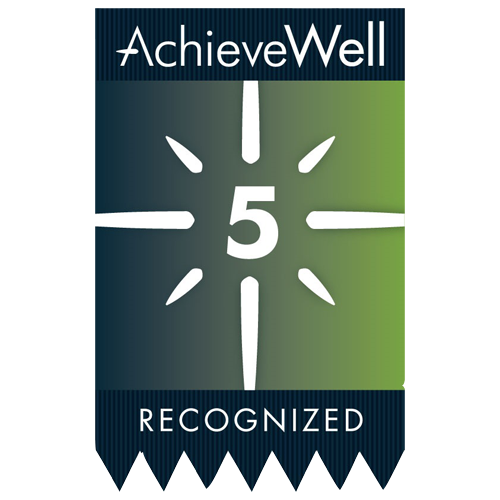Background
The Internal Revenue Code (“IRC”) and the Health Insurance Portability and Accountability Act (“HIPAA”) govern enrollment in health plans.
- The Affordable Care Act (“ACA”) also created additional enrollment events for health plans.
- Plans are required to offer an open enrollment opportunity once per year. Mid-year changes are either required (HIPAA) or permitted (Cafeteria Plans).
Note: Section 125 of the Internal Revenue Code (“Section 125”) provides that a “cafeteria plan” is a written plan maintained by an employer under which all participants may choose among two or more benefits consisting of cash and qualified benefits.
Qualified Benefits Under Section 125
- Group health benefits
- Accident and disability coverage
- Adoption assistance
- Dependent care assistance
- Group-term life insurance coverage
- HSAs
Nondiscrimination Testing
Cafeteria plans must benefit a group of employees under a reasonable classification, such as: specified job categories, salaried vs. hourly employees or geographic location. Section 125 provides that cafeteria plans cannot discriminate in favor of Highly Compensated Individuals (“HCIs”) and Key Employees as to eligibility to participate, contributions or benefits. The prohibition on discrimination applies to HSAs, pre-tax Flexible Spending Accounts (“FSAs”) and all other cafeteria plans.
Highly Compensated Individuals
- Officers
- Owners of more than 5%
- Highly compensated based on salary ($150,000 or more in 2023 for 2024 testing)
- A spouse or dependent of the above
Key Individuals
- Officers with high compensation ($220,000 or more for 2024)
- Owners of more than 5%
- Owners of more than 1% with compensation over $150,000 (not adjusted annually)
HCI Testing
- Non-HCI employees cannot be charged more than any similarly situated HCI for the same benefit.
Plan cannot discriminate in actual operation.
Key Concentration Testing
- Key employees cannot have more than 25% of the nontaxable benefits provided to all
employees under the plan.
If a plan fails either test, the pre-tax elections made under that plan are treated as taxable income. If an employer has multiple plans, the employer may aggregate two or more plans for nondiscrimination purposes, but the multiple aggregated plans will be treated as if they were a single plan for testing purposes.
Mistakes
If an employee needs to make a change after an open enrollment election (not including special enrollment provisions that are discussed later) the change must be allowable under the terms of the plan and applicable standards and policies of the employer. Permitting an allowable change is optional for employers under the terms of the plan. There are two approaches that are used to make the determination of whether a change is permissible – “mistakes” and Section 125 permitted changes.
Impossibility Standard
- Allows a correction only if it can be established that it was impossible for the employee to benefit from the mistaken election.
Facts and Circumstances Standard
- Allows errors to be corrected if the plan administrator can reasonably ascertain, based on facts and circumstances, that a mistake has actually occurred.
- Requires “clear and convincing evidence.”
Permitting a change creates significant liability if the changes are allowed incorrectly. Hefty tax penalties and fines as well as disqualification of the plan and loss of tax-preferred status for all participants could be a consequence of allowing such changes and implementing them incorrectly.
Section 125 Election Change Events
Regulations to Section 125 provide that open enrollment elections can be changed during a permitted election change event. These changes can only be made to benefits that employees pay for on a pre-tax basis. Example: Legal separations for domestic partners are likely not a permitted election change event if the domestic partner coverage is paid for on an aftertax basis (usually, when a domestic partner is not a tax dependent) because of the Section 125 Cafeteria Plan.
Event: Marriage (HIPAA Special Enrollment Event)
Employee may enroll themselves, their new spouse, and any eligible children in medical, dental and vision in their plan or cancel coverage and enroll in the new spouse’s plan.
Flexible Spending Accounts:
- Health Care FSA – Enroll/increase contributions for the remainder of the year, or revoke or decrease contributions if employee/their dependents enroll in the new spouse’s health plan.
- Dependent Care FSA – Enroll if employee gains an eligible dependent, increase/decrease contributions for the remainder of the plan year, or stop participating if the spouse is not employed, disabled or a full-time student.
Event: Birth/Adoption/Placement for Adoption (HIPAA Special Enrollment Event)
Employee may enroll themselves, their spouse and/or the eligible children, in medical, dental and vision benefits available in their plan or cancel coverage and enroll in the new spouse’s plan.
Flexible Spending Accounts:
- Health Care FSA – Enroll/increase contributions for the remainder of the year, or revoke or decrease contributions if employee/their dependents enroll in the spouse’s health plan.
- Dependent Care FSA – Enroll/increase contributions for the remainder of the plan year.
Event: Death of an Employee
Surviving spouse and/or covered dependents eligible for up to 36 months of COBRA coverage if they notify the plan timely for health, vision and dental benefits.
Flexible Spending Accounts:
- Health Care FSA – May be eligible to continue participation through the end of the year if COBRA applies.
- Dependent Care FSA – May be eligible to continue participation through the end of the year.
Depended Child Loses Eligibility (Including Death of Child)
The child must be removed from medical, dental and vision benefits, but will be eligible for COBRA if all applicable notice requirements are met.
Flexible Spending Accounts:
- Health Care FSA – May decrease/revoke contributions for remainder of the year for the dependent who loses eligibility.
- Dependent Care FSA – May decrease/revoke contributions for remainder of the year for the dependent who loses eligibility.
Event: Divorce or Legal Separation
Employee may enroll themselves and any eligible children in medical, dental and vision in their plan or cancel the former spouse’s or dependent children’s coverage if the dependent children will enroll in former spouse’s plan.
Flexible Spending Accounts:
- Health Care FSA – Enroll/increase contributions, if employee lost coverage under the former spouse’s plan. Decrease/revoke contributions for the remainder of the plan year.
- Dependent Care FSA – Enroll or increase contributions if expenses increase because of the event. Decrease/revoke contributions if there is no more need for care.
Event: Spouse Gains Eligibility for Their Plan
For medical, dental and vision benefits, the employee may change coverage to employee only if eligible dependents move to spouse’s plan or stop participation if eligible dependents enroll in spouse’s plan.
Flexible Spending Accounts:
- Health Care FSA – Decrease/revoke contributions if employee gains eligibility under spouse’s plan. Enroll/increase contributions if employee or spouse lose coverage under another plan.
- Dependent Care FSA – Enroll if spouse becomes employed or full time student. Increase contributions for the remainder of the year if the event causes an increase in child care. Stop participating if spouse is no longer employed or full-time student.
Event: Spouse Loses Eligibility for Their Plan (HIPAA Special Enrollment Event)
For medical, dental and vision benefits, the employee may enroll themselves and eligible dependents to employee’s plan if they were previously covered in spouse’s plan.
Flexible Spending Accounts:
- Health Care FSA – Decrease/revoke contributions if employee gains eligibility under spouse’s plan. Enroll/increase contributions if employee or spouse lose coverage under another plan.
- Dependent Care FSA – Enroll if spouse becomes employed or full time student. Increase contributions for the remainder of the year if the event causes an increase in child care. Stop participating if spouse is no longer employed or full-time student.
Event: Gain Medicare/Medicaid/CHIP Assistance Eligibility (HIPAA Special Enrollment Event)
Employee may enroll themselves and any eligible dependents if they and their eligible dependents were covered under the spouse’s plan for medical, dental and vision benefits.
Flexible Spending Accounts:
- Health Care FSA – Enroll/increase contributions if employee or spouse lose coverage under spouse’s/parent’s plan.
- Dependent Care FSA – Increase contributions if event causes increase in childcare costs. Enroll if employee’s spouse becomes employed or full-time student.
Event: Loss of Medicare/Medicaid/CHIP Eligibility (HIPAA Special Enrollment Event)
Employee may enroll themselves, their spouse, and any eligible dependent who lost coverage in their medical, dental or vision plan.
Flexible Spending Accounts:
- Health Care FSA – Enroll/increase contributions for the remainder of the plan year.
- Dependent Care FSA – No change permitted.
Other Qualifying Events Under Section 125
- Open enrollment if spouse or parent have different open enrollment period.
- Moving/Change of Residence
- Enrollment in Medicare/Medicaid
- Judgments/Court Orders such as Qualified Medical Child Support Orders and National Medical Support Notices
- Remaining eligible for the cafeteria plan but becoming eligible for COBRA (ex. Reduction in work hours/dependent reaching maximum age).
- ACA Related Events: Reduction in work hours/exchange enrollment.
- Change in use of daycare or daycare costs – Dependent Care FSA only.
HIPAA Special Enrollment Events
A subset of IRC Section 125 election change events that provide additional rights to participants.
HIPAA Special Enrollment Events are:
- Loss of eligibility for group health coverage or individual health insurance coverage;
- Loss of Medicaid/CHIP Eligibility or becoming eligible for a sate premium assistance subsidy under Medicaid/CHIP; and
- Acquisition of a new spouse or dependent by marriage, birth, adoption or placement for adoption.
Upon experiencing a HIPAA special enrollment event, the plan is required to allow the employee to select any medical benefit package available under the plan. Generally, HIPAA special enrollment provides a period at least 30 days from the date of the event for the employees to make an election. When employees lose Medicaid and/or CHIP coverage or gain eligibility for such coverage, they must have at least a 60-day period from the date of the event to make their election.
The periods can be extended by the employer, but the employer should discuss any periods above the minimum threshold with their stop-loss insurance carrier. Typically, an election to enroll in
coverage pursuant to a HIPAA Special Enrollment Event must be effective no later than the first of the month following the date of the election change request.
The general rule is that an election to enroll in coverage pursuant to a HIPAA Special Enrollment Event must be effective No Later Than The First Of The Month Following The Date Of The Election. If an employee has a new child or placement for adoption, coverage must be effective as of the date of the event. Section 125 generally only permits retroactive elections except where
the event is birth, adoption, or placement for adoption. In almost all other cases, the employee cannot pay for an election change on a pre-tax basis for any period prior to the date of the election.
Main Takeaways
- Cafeteria plans provide tax incentivized benefit options but the plans must not discriminate in favor of Highly Compensated Individuals or Key Employees.
- Cafeteria plan mid-year changes are permissive and employers are not required to include them.
- Open enrollment elections are typically irrevocable unless certain conditions are met.
- Section 125 Election Change Events are important to be familiar with and keep track of.
- HIPAA Special Enrollment Events are mandatory and apply to medical plans only, but they allow the employee to elect any medical packages available under the plan.





